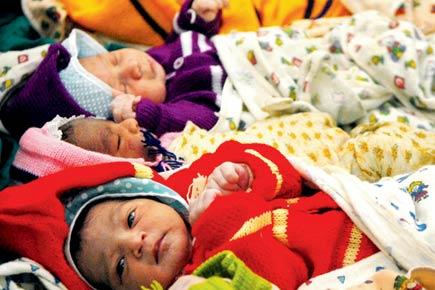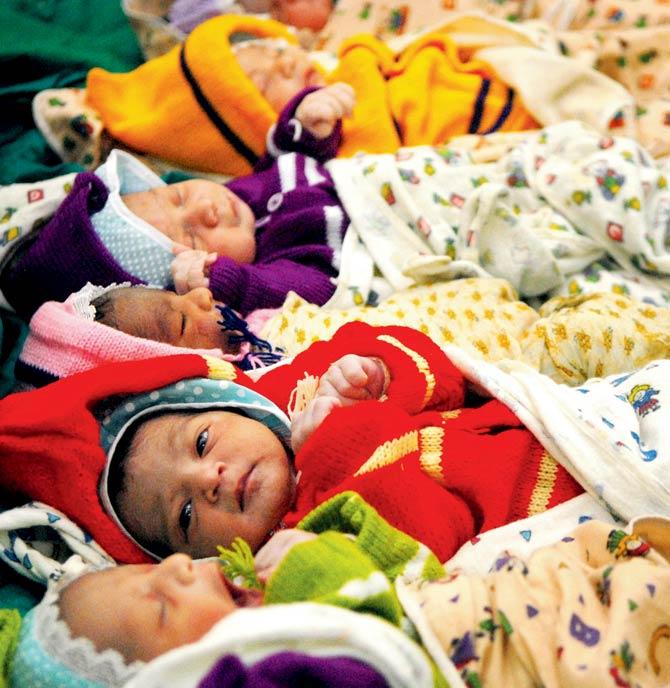From 2010-15, Mumbai registered 5,54,965 deaths (3,26,753 males and 2,28,212 females). Of these 29,609 (16,154 boys and 13,455 girls) were infants


Refusing to go to a paediatrician for even minor ailments could prove fatal in case of an infant. Representational pic
Mumbai has a grave situation on its hands, and we don’t know it. As many as 4,934 children die every year in the city before their first birthday. According to data sought exclusively by mid-day from the civic administration, 29,609 infants (aged 0-1) died in the city from 2010-15. Simply put, over 13 infants die every day in the city — a number that is higher than the average railway track deaths (9) recorded in Mumbai every day.
From 2010-15, Mumbai registered 5,54,965 deaths (3,26,753 males and 2,28,212 females). Of these 29,609 (16,154 boys and 13,455 girls) were infants.
Dr Kiran Coelho, head of the department of gynaecology, Lilavati Hospital, says diarrhoea is the most common cause of death in the age group of 0-4. Besides, parents often don’t consult paediatricians for, what they deem, minor illnesses.
“All children under the age of 5 should be taken only to paediatricians for treatment. Besides, an incomplete course of treatment could lead to drug resistance. Also, mothers often don’t breastfeed properly, which weakens the child’s immunity,” explains Coelho.
See a paediatrician
Dr Mukhesh Agarwal, head, department of paediatrics, says respiratory infections, too, are a leading cause of death among infants. Besides, delays in treatment can cause health complications. “We often get patients who arrive at the last stage of an illness. A general physician will not be as qualified as a paediatrician to diagnose an infant’s problems. Even a minor misdiagnosis can prove fatal,” he said.
But the high infant mortality rate is not the worst news. Female infant mortality in the city stands at 5.89%, as against 4.94% among boys.
Doctors and activists believe that a gender bias in caring for the girl child contributes largely to this, be it sanitation, nutrition, breastfeeding or vaccination/immunisation.
Dr AL Sharada, director of NGO Population First, says the odds are often stacked against girls, right from the stage of infancy. “In our society, boys are still given preference over girls.” She explains that often when a boy takes ill, the ‘response time’ from the family is faster as compared with the treatment of girls.
She feels that “in nearly 60% of the infant mortality cases, it would have been a child from slum areas succumbing to an illness”. She suggests that the BMC undertake programmes, especially in slum areas, to tackle this.
Dr Vipil Salgia, a radiologist, attributes the high female infant mortality rate to a combination of poor nurturing and a discrimination against girls.
Finding a solution
Vidya Thakur, minister of state for women and child development, however, is not aware of the grim situation. “I will have to check with the authorities before making any comment on the issue,” she told mid-day.
Civic health officials did not respond to mid-day’s calls.
Former Health Minister Suresh Shetty says the problem also lies with the BMC and the state government’s sole focus on child sex ratio (number of girls per 1,000 boys aged 0-6).
“Focusing only on child sex ratio is not enough. There is a need for a system that monitors newborns’s growth, especially girls’, till the age of five.”
- With inputs from Rupsa Chakraborty
 Subscribe today by clicking the link and stay updated with the latest news!" Click here!
Subscribe today by clicking the link and stay updated with the latest news!" Click here!







